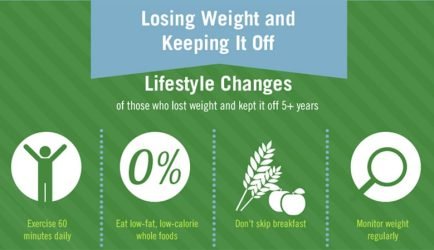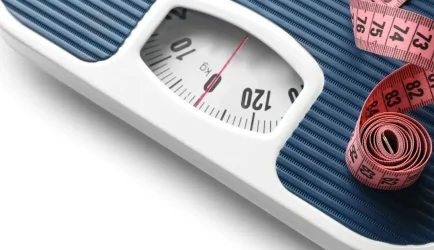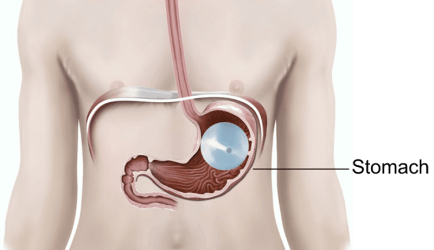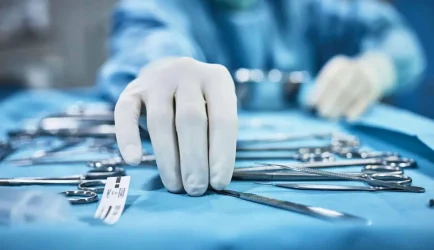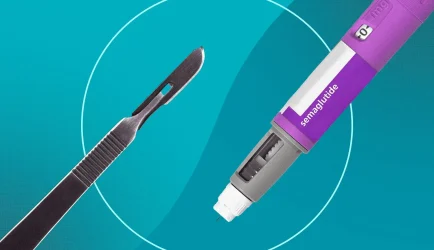4 Strategies on How to Protect Muscle While Losing Weight on GLP-1 Medications or Bariatric Surgery
When embarking on a weight loss journey, whether through GLP-1 medications like Ozempic and bariatric surgery, most individuals have one goal in mind: losing fat. But there’s an often-overlooked companion to fat loss that deserves equal attention, muscle preservation.
Weight loss is not just about watching the numbers drop on the scale; it’s about improving health, energy, and long-term metabolic function. In fact, maintaining lean muscle mass can help prevent weight regain, boost your metabolism, and ensure that the weight you’re losing is primarily from fat, not muscle.
In this blog, we’ll explore why preserving muscle is critical during weight loss, the best strategies to avoid muscle loss, and how you can reach your fat loss goals without compromising your strength, energy, or metabolic health.
Weight Loss vs. Fat Loss: Why the Distinction Matters

At first glance, weight loss and fat loss may seem interchangeable, but they’re not.
- Weight loss refers to a reduction in overall body weight, including fat, water, and even lean muscle.
- Fat loss, on the other hand, is specifically the reduction of body fat stores while preserving lean tissue like muscle.
Why is this distinction so important?
Because when your body starts burning muscle instead of fat, especially during rapid weight loss or low-calorie diets, you lose the very tissue that keeps your metabolism revved and body strong.
Whether you’re on GLP-1 medications (such as Ozempic or Wegovy) or recovering from bariatric surgery (such as a gastric sleeve or gastric bypass), your goal should be to achieve fat loss while retaining muscle..
Why Muscle Loss Happens During Weight Loss
Weight loss methods that involve caloric restriction or appetite suppression, common with GLP-1 receptor agonists, can sometimes lead to inadequate protein intake. Without sufficient protein and resistance training, the body may tap into muscle for energy, especially if you’re losing weight rapidly.
Likewise, bariatric surgery patients often struggle to meet their nutritional requirements, particularly in the initial post-operative stages, where solid food intake is minimal. This creates the perfect storm for muscle wasting, fatigue, and even metabolic slowdown.

Why You Must Protect Lean Muscle Mass
Losing muscle mass doesn’t just make you weaker. It affects nearly every aspect of your health:
- Reduced Metabolic Rate: Muscle burns more calories than fat, even at rest. Losing muscle means your body requires fewer calories, making future weight loss harder.
- Increased Fat Regain Risk: A slowed metabolism can cause a rebound effect once your weight loss slows or stops.
- Fatigue and Weakness: Without muscle, everyday tasks become more difficult, and your energy levels plummet.
- Poor Immune Function: Muscle is important for supporting immune responses and physical recovery.
The good news? With the right nutrition and exercise strategy, muscle loss is preventable—even during aggressive weight loss.
Top Strategies to Preserve Muscle During Weight Loss

1. Prioritize High-Quality Protein
High Quality Protein is essential for muscle repair, growth, and maintenance. Unfortunately, GLP-1 medications can suppress appetite so effectively that many users fail to get adequate protein, and bariatric surgery patients often experience food aversions early post-op.
To meet your daily protein goals:
- Include protein in every meal and snack
- Aim for 1.2 to 1.5 grams of protein per kg of body weight per day (or as recommended by your healthcare provider)
- Focus on high-quality protein sources, such as:
- Whey protein
- Milk proteins (casein)
- Eggs
- Lean meats
- Fish and seafood
- Soy
- Lentils and legumes
Oral nutritional supplements with complete proteins and added vitamins and minerals are ideal for those who cannot meet their needs through food alone.
2. Incorporate Resistance Training

Strength training is the secret weapon for preserving and even building muscle during weight loss.
Aim for 2–4 sessions per week of bodyweight exercises, resistance bands, or light weights focusing on major muscle groups.
Not only does resistance training stimulate muscle protein synthesis, but it also prevents the muscle breakdown that can occur with calorie restriction or medication-induced appetite suppression.
3. Use Protein Supplements Wisely
If you’re struggling to eat enough whole foods due to GLP-1-induced satiety or post-surgery dietary restrictions, protein supplements can be a convenient and effective option.
Choose products with:
- At least 20g of protein per serving
- Low sugar and low fat
- Added vitamins and minerals (especially important after bariatric surgery)
4. Stay Hydrated and Get Enough Sleep
Both hydration and sleep play indirect but critical roles in preserving muscle mass and promoting recovery. Aim for 7–9 hours of quality sleep per night, and drink plenty of water, especially if you’re exercising regularly.
What Happens If You Lose Too Much Muscle?
Losing excessive lean muscle can cause:
- Chronic fatigue
- Mood swings and lack of motivation
- Slower metabolism and plateaued weight loss
- Weakened immune function
- Reduced physical function and injury risk
If you notice these symptoms during your weight loss journey, it’s time to re-evaluate your nutrition, exercise, and supplementation plan.
GLP-1 Medications and Muscle Loss: What You Should Know

GLP-1 receptor agonists such as Ozempic, Wegovy, and Saxenda are effective tools for weight loss, but they’re not without concerns. Some studies and anecdotal reports suggest that users may experience muscle loss or Sarcopenia, especially if protein intake is low or physical activity is minimal.
Additionally, long-term use has been associated in some cases with:
- Muscle wasting if dietary support is lacking
- Rare but reported eye complications (due to fluid shifts or blood sugar changes)
- A phenomenon known as “Ozempic face” , facial volume loss due to rapid fat and possibly muscle loss
Bariatric Surgery and Muscle Maintenance
Bariatric surgery remains the gold standard for long-term weight loss in individuals with obesity, but it requires lifelong nutrition management to avoid muscle loss.
Many patients are encouraged to start:
- Protein supplementation immediately post-op
- Light resistance exercises within 6 weeks (with physician guidance)
- Regular follow-ups with dietitians and bariatric support teams

A DEXA scan image showing muscle and fat composition
“Don’t just shrink the number on the scale , build the healthiest version of you.”
Your Body, Your Strength

Whether you’re pursuing weight loss with GLP-1 medications or bariatric surgery, the key to success is not just losing weight, but losing fat while keeping your muscle.
By combining:
- A high-protein diet
- Consistent resistance training
- Smart use of oral nutrition supplements
- And ongoing support from your care team
you can protect your most powerful ally in health and weight management: your muscle.
Download our Free Guide The Fit Gut
Need help designing a weight loss plan that protects muscle and supports long-term success?
📞 Contact the Body Genesis Institute today to speak with our expert team of doctors, dietitians, and exercise specialists.





